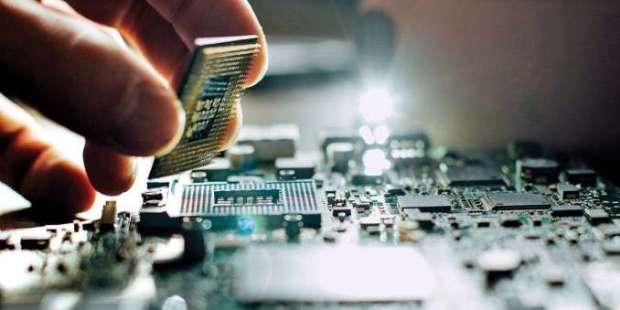The Indian government has taken a significant step towards boosting the country’s domestic manufacturing capabilities in the electronics sector. In a recent development, the government has kick-started the process to select eligible companies for the Production Linked Incentive (PLI) scheme aimed at promoting cell manufacturing. This strategic move aims to reduce dependence on imports and strengthen India’s position in the global electronics market.

Bright Future for Electronic Industry: Government Ignites Cell-Making Revolution with PLI Scheme
The Production-Linked Incentive (PLI) scheme, introduced by the Indian government aims to provide financial incentives to eligible companies that manufacture high-value electronic components locally. The scheme focuses on promoting the manufacturing of advanced cells which are crucial components used in various electronic devices such as mobile phones, tablets and laptops.
By encouraging domestic cell manufacturing, the government aims to achieve multiple objectives. Firstly, it aims to reduce India’s reliance on imports, particularly from countries like China, which currently dominate the global electronics market. This move aligns with the government’s larger vision of achieving self-reliance and becoming an independent manufacturing hub.
Secondly, the PLI scheme aims to attract substantial investments into the country’s electronics manufacturing sector. By providing financial incentives to eligible companies, the government seeks to boost the overall manufacturing ecosystem create employment opportunities, and enhance technological capabilities within the country.
Selection Process and Eligibility Criteria
The process of selecting companies for the cell-making PLI scheme has been initiated with the release of the guidelines and expression of interest (EOI) document. Interested companies will need to submit their applications, demonstrating their capabilities, expertise, and proposed investment plans in cell manufacturing.
To be eligible for the scheme, companies are required to meet certain criteria, including a minimum threshold of net worth and a commitment to make substantial investments in setting up or expanding existing manufacturing facilities. The government will assess these applications based on various parameters, including the company’s experience, technical expertise, and their proposed manufacturing plans.
The selection process will be carried out through a competitive evaluation by a committee of experts and industry professionals. The committee will thoroughly review the applications and evaluate the potential of each company to contribute to the development of the cell manufacturing ecosystem in India.
Expected Impact on the Electronics Sector
The cell-making PLI scheme is expected to have a transformative impact on India’s electronics sector. By incentivizing domestic cell manufacturing, the government aims to attract major global players and encourage them to set up their manufacturing units within the country. This move will not only help create employment opportunities but also enhance India’s technical expertise and capabilities in the electronics domain.
Furthermore, the scheme will contribute to the growth of the entire electronics manufacturing value chain. With the availability of locally manufactured cells, it will become economically viable for companies to assemble electronic devices within the country, reducing their dependence on imports. This, in turn, will create a more favorable business environment and strengthen India’s position as a manufacturing powerhouse.
